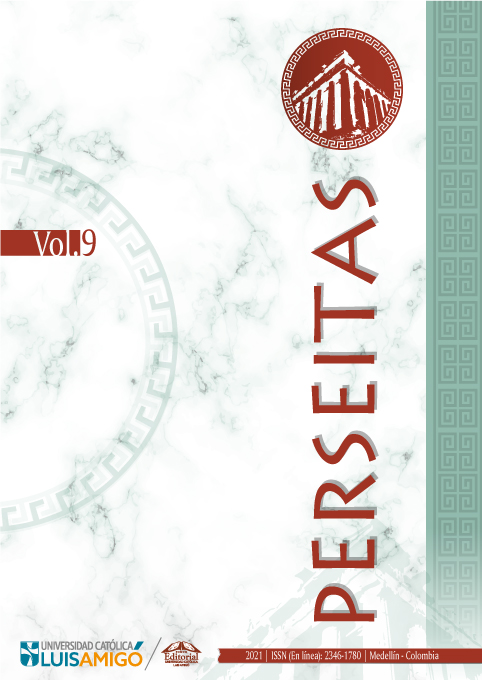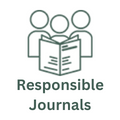Words about god in contexts of peripheral communities of Medellín
DOI:
https://doi.org/10.21501/23461780.3961Keywords:
God, Creed, Ecclesial communities, Poverty, MedellínAbstract
This article analyses the "words about God" of five peripheral ecclesial
communities of Medellín, through a hermeneutic and ethnographic method. This
is developed in two moments; the first one, characterizes the subject and object
of study population; and the second one, identifies the visions and attributes of
God that these people possess from the religious experience. It is concluded
that most of the people who participated in the study assume the existence
of God, conceiving him as a personal, eternal, spiritual and supreme being.
In their affirmations, the influence of a Trinitarian vision of divinity is evident,
which implies an act of trust. God, in this context, is above all powerful, acts and
creates. In the manifestation of people's experience, no conceptual difference is
perceived in relation to the vision of God professed by Christianity; and although
there is a use of traditional language to refer to the contents of faith, the way in
which they understand and explain each one of them is not simple. This has an
impact on ecclesial practices.
Downloads
References
Alcaldía de Medellín. (2017). Índice Multidimensional Encuesta Calidad de Vida 2011-2017. https://www.medellin.gov.co/irj/portal/medellin?NavigationTarget=contenido/6919-Encuesta-de-Calidad-de-Vida-2017
Alvarado, J. (2016). ¿Qué es una ‘religión’? Tres teorías recientes. ’Ilu. Revista de Ciencias de Las Religiones, (21), 31–49.
Biris, I. (2018). On the logic the christian trinity: Co-inherence and the nesting relationships. Journal for the Study of Religions & Ideologies, 17(50), 17–29. http://search.ebscohost.com/login.aspx?direct=true&db=hlh&AN=130239863&site=ehost-live
Cifuentes R. (2011). Diseño de proyectos de investigación cualitativa. Noveduc.
Comissão Teológica Internacional. (2012). Teologia hoje: perspectivas princípios e critérios. Libreria Editrice Vaticana.
Comissão Teológica Internacional. (2014). O sensus fidei na vida da Igreja. Libreria Editrice Vaticana.
Concílio Vaticano II. (1965). Documentos do Concílio Vaticano II. Libreria Editrice Vaticana.
Conselho Episcopal Latino-Americano. (2007). V Conferência Geral do Episcopado Latino-Americano e do Caribe. http://www.dhnet.org.br/direitos/cjp/a_pdf/cnbb_2007_documento_de_aparecida.pdf
Filtvedt, O. (2017). The Transcendence and Visibility of the Father in the Gospel of John. Zeitschrift Für Die Neutestamentliche Wissenschaft, 108(1), 90–118.
Francisco. (2015a). Laudato Si. Libreria E.
Francisco. (2015b). Misericordiae Vultus. Libreria E.
Gadamer, H. (2004). Verdad y método (6 ed., Vol. II). Sígueme.
Guber, R. (2011). La etnografía: método, campo y reflexividad. Siglo XXI.
Gutiérrez, G. (2000). Teologia da libertação. Perspectivas. Edições Loyola.
Heidegger, M. (2009). Ser y tiempo (2 ed.). Trotta.
Jensen, E. (2018). Hell and the image of God in the spiritual exercise. Way, 57(3), 91–102. http://search.ebscohost.com/login.aspx?direct=true&db=a9h&AN=130667933&site=ehost-live
Lane, A. N. S. (2018). The Nicene Creed: A Round Table Discussion. Evangelical Quarterly, 89(2), 99–114. http://search.ebscohost.com/login.aspx?dir
ect=true&db=a9h&AN=129405895&site=ehost-live
Lecaros, V. (2017). ¿Dios castigador, Dios juez o Dios amado? Imágenes de Dios en medios católicos y pentecostales peruanos. Horizonte, 15(46), 571–594.
Luciani, R. (2017). La opción por los pobres desde una Iglesia pobre y para los pobres. Medellín, (168), 347–373.
Ospina, J., & Rúa, J. (2020). Intervención política de movimientos eclesiales en Medellín: la apuesta por la participación y la representación. En L. M.
Gallego Ramírez (Ed). Emergencias y retos para una educación contemporánea: Acciones educativas que transforman los contextos. (pp. 55-110). Sello Editorial Escuela Pomponazzi.
Parra, A. (2003). Textos, contextos y pretextos. Pontificia Universidad Javeriana.
Rahner, K. (1979). Curso fundamental sobre la fe. Herder.
Ramos, A. (2016). Ateísmo y espiritualidad. ’Ilu. Revista de Ciencias de Las Religiones, (21), 165–183.
Ramos, C. (2015). Los paradigmas de la investigación científica. Av. Psicol, 23(1), 9-17.
Sánchez, A., & Rúa, J. (2020). El acompañamiento espiritual como posibilitador de procesos formativos. En L. M. Gallego Ramírez (Ed). Emergencias y retos para una educación contemporánea: Acciones educativas que transforman los contextos. (pp. 314-349). Sello Editorial Escuela Pomponazzi.
Sarot, M. (2016). Believing in God the Father: Interpreting a phrase from the Apostle’s Creed. Theological Studies, 72(4), 1–4.
Turpe, J. (2017). Las presuposiciones filosóficas de la investigación teológica (bíblica y sistemática). Revista de Investigación Apuntes Universitarios, 7(1), 166–178.
Uwineza, M. (2018). The human person is the question to which God is the answer: Humanity in the Theology of Karl Rahner. Way, 57(2), 75–89. http://search.ebscohost.com/login.aspx?direct=true&db=a9h&AN=129526043&site=ehost-live
Wandenfels, H. (1994). Teología fundamental contextual. Sígueme.
Younger, P. (2018). ’Way beyond all science: A Scientist’s Perspective on Knowing God. Way, 57(2), 7–16. http://search.ebscohost.com/login.aspx?direct=true&db=a9h&AN=129526036&site=ehost-live
Published
How to Cite
Issue
Section
License
Copyright (c) 2021 Perseitas

This work is licensed under a Creative Commons Attribution-NonCommercial-NoDerivatives 4.0 International License.
La revista y los textos individuales que en esta se divulgan están protegidos por las leyes de copyright y por los términos y condiciones de la Licencia Creative Commons Atribución-No Comercial-Sin Derivar 4.0 Internacional.
















